Errington Cheese drops legal bid against E.coli sales ban
- Published
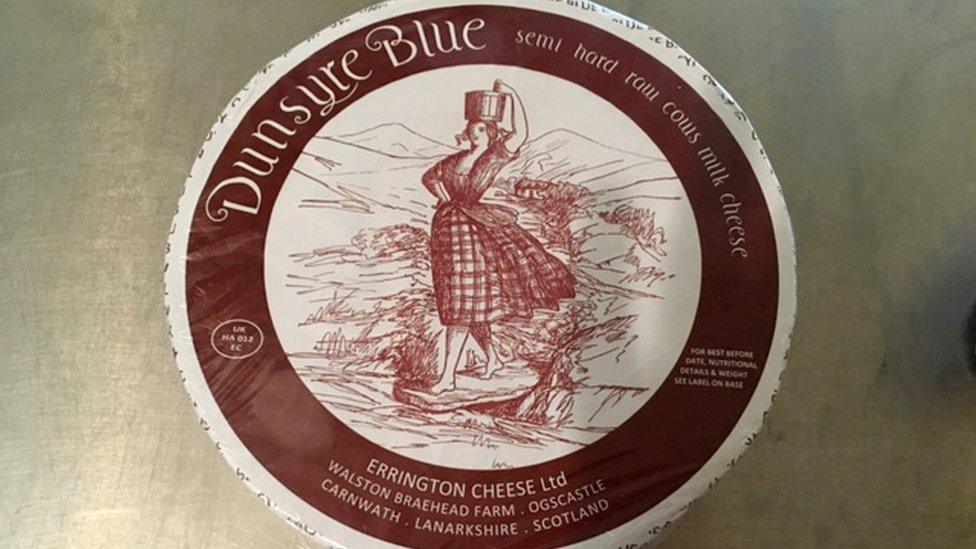
Health officials have already investigated possible links to Dunsyre blue cheese
A Scottish cheesemaker linked to a fatal E.coli outbreak has dropped a legal challenge against a ban on the sale of all of its products.
Food Standards Scotland (FSS) imposed the blanket ban after finding strains of the bacteria in batches of Dunsyre Blue and Lanark Blue.
In a separate development, FSS has released details of risk assessments they undertook.
It said the food poisoning was a "major food incident".
Producer Errington Cheese has insisted its products are safe.
Now a judicial review of the decision has been dropped, the FSS has agreed to pay "reasonable judicial expenses".
Lanarkshire-based Errington Cheese was linked to an E.coli outbreak in July in which a three-year-old girl from Dunbartonshire died.
In September the FSS imposed a ban on all cheese produced by the firm. People were advised not to eat the cheese and to return it to the seller.
After the legal challenge to the order was dropped, the watchdog confirmed it had issued a revised order in relation to Errington Cheese products.
It stressed that the full product withdrawal remains in place as the cheeses are "regarded as a risk to health".
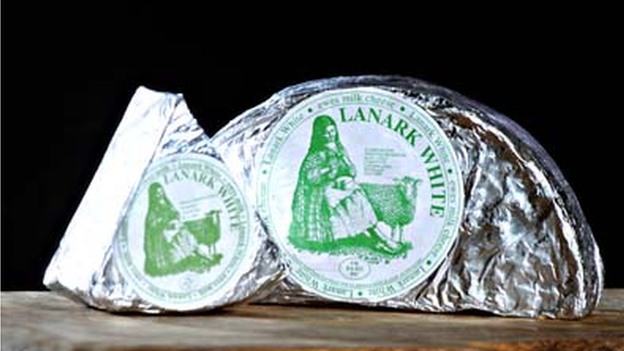
All cheese produced by Errington has been banned
Errington Cheese claims there is "no evidence" linking its produce to the outbreak.
It launched the judicial review because it wanted FSS to make its evidence public and open to scrutiny.
Company founder Humphrey Errington told BBC Scotland that FSS lawyers had now offered to pay the firm's legal costs if it dropped the judicial review.
However the watchdog denied the claim and in a statement it said: "FSS has not agreed to to pay Errington Cheese Ltd's legal fees in full.
"FSS has agreed to pay the reasonable judicial expenses incurred in connection with the raising of the judicial review."
'Frustrating battle'
Mr Errington said the firm had also been offered a meeting with Food Standards Scotland to resolve their differences.
"We have accepted that," he said.
"It's a major 'back off' off from them," he added. "It's a big, big step but it's far from getting us back in the market.
"Our aim is get them to see that our cheese is not a risk to health."
In a statement on its website, external, Errington Cheese said: "This continues to be proving a long and frustrating battle and it continues to be the case that we are currently prevented from selling any cheese by the authorities.
"We continue to fight to re-open our business and to prove our innocence and are frustrated that we are being denied the opportunity to see our case vindicated."
'Serious deficiencies'
In a statement, Food Standards Scotland confirmed that samples taken from different batches of different cheeses tested positive for E.coli O157 and for other strains of the bacteria.
FSS chief executive Geoff Ogle said: "This outbreak led to one fatality and 11 people being hospitalised.
"This was a major food incident where there was a significant risk to public health, with a tragic outcome.
"We have therefore decided to release the three versions of our risk assessment, each undertaken as new information became available, as well as our final risk management decision document."
Details were published on the FSS website, external.

What is E. coli?
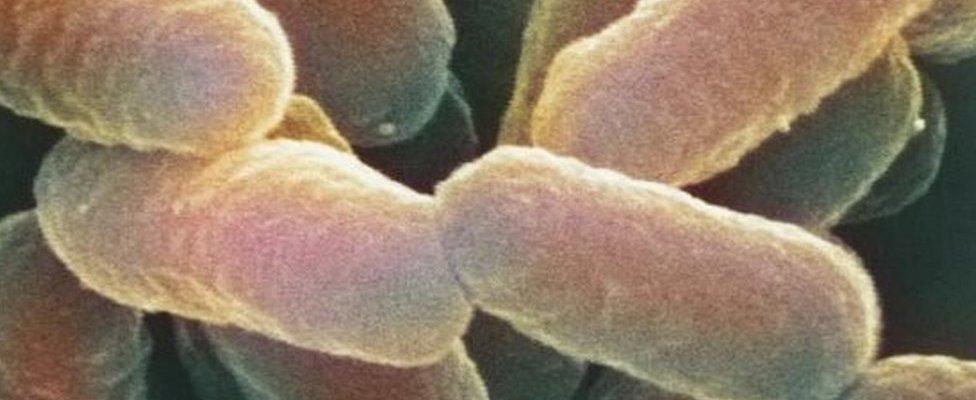
E. coli is a type of bacteria commonly found in the intestines of humans, livestock and other animals, and is excreted in faeces.
The O157 strain is a leading cause of food-borne illness and can be particularly dangerous.
The bacterium is generally spread by contaminated food and water but also can be passed among humans.
In people with weak immune systems, particularly young children and the elderly, the infection can cause serious kidney damage, blindness, paralysis and sometimes death.
Symptoms can include abdominal cramps and diarrhoea that may be bloody and people may also experience fever and vomiting.

- Published15 September 2016
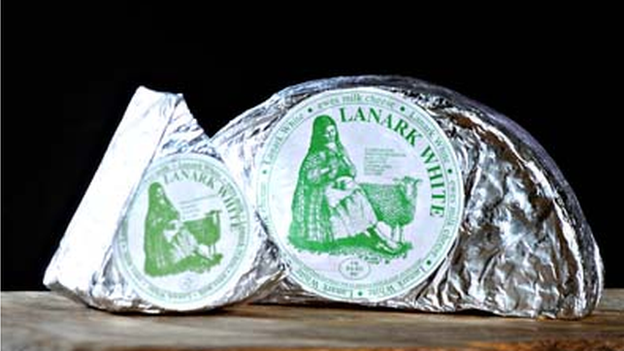
- Published10 September 2016

- Published5 September 2016
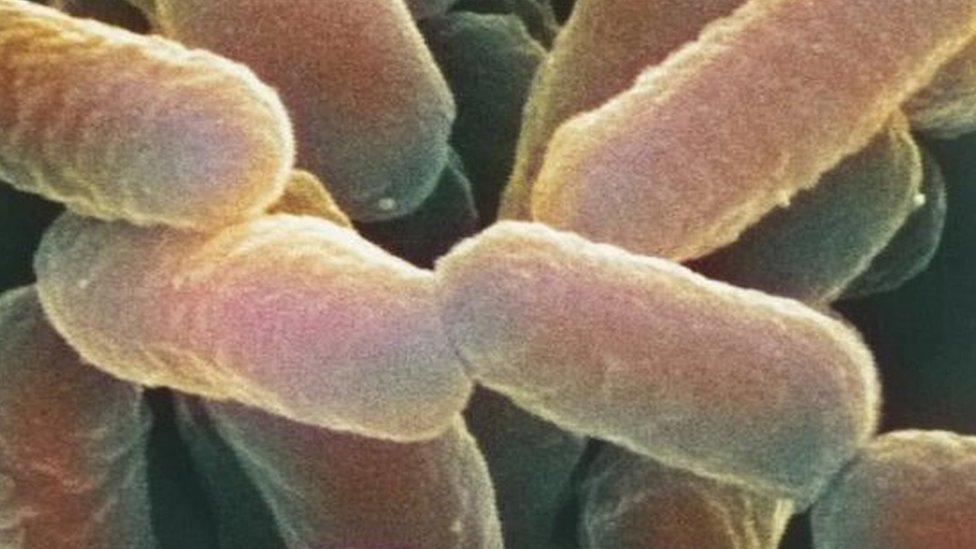
- Published8 September 2016
